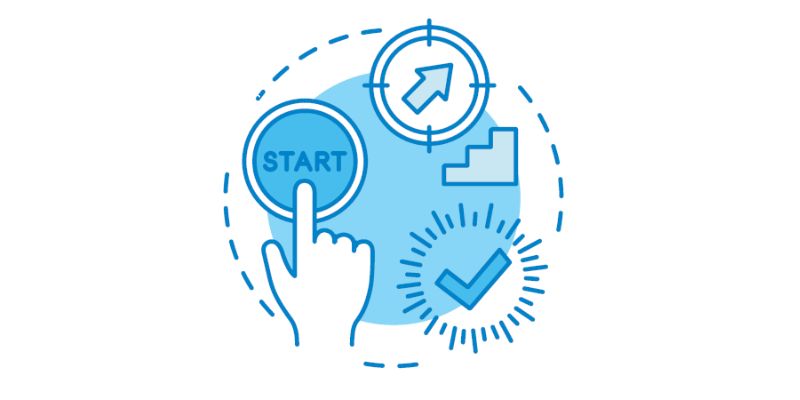In today's fast-paced world, managing personal finances effectively is important for achieving financial stability and success. Whether you're just starting your financial journey or looking to enhance your current practices, implementing a few key strategies can make a significant difference.
In this article, we'll explore five practical tips to improve your personal finances and set yourself on the path to financial well-being.
5 Great Tips to Boost Your Personal Finances and Achieve Financial Success
Ready to take control of your money and steer your way toward financial success? Discover five simple yet powerful tips that can boost your personal finances and set you on the path to achieving your financial goals. Let's dive in and start building a brighter financial future!

Create a Realistic Budget
One of the fundamental pillars of sound financial management is creating a realistic budget. A budget helps you understand your income, expenses, and savings goals. Start by listing all your sources of income, including your salary, side hustles, or any other sources of cash flow. Next, catalog all your monthly expenses, from rent or mortgage payments to utility bills and groceries.
Creating a budget doesn't mean depriving yourself of the things you enjoy; it's about allocating your money wisely. Identify areas where you can cut back or find more affordable alternatives. Use budgeting tools or apps to track your spending and stay on top of your financial goals. Adjust your budget as needed, especially when life circumstances change.
Build an Emergency Fund
Life is unpredictable, and unexpected expenses can arise at any time. That's why having an emergency fund is essential for financial security. Aim to save at least three to six months' worth of living expenses in your emergency fund. This money acts as a financial cushion, providing a safety net in case of unknown medical bills, car repairs, or job loss.
Start small if necessary, but be consistent. Set up automatic transfers to your emergency fund each month to ensure you're consistently contributing. Keep your emergency fund in a separate account, such as a savings account, to reduce the temptation to dip into it for non-emergencies.
Having this financial buffer will provide peace of mind and protect you from financial stress when the unexpected occurs.
Manage and Reduce Debt
Debt can be a significant obstacle to achieving financial freedom. Prioritize paying off high-interest debts, such as credit cards, as quickly as possible. Create a debt repayment plan that aligns with your budget and financial goals. Consider the snowball or avalanche method to tackle multiple debts strategically.
The snowball method involves paying off the smallest debt first, gaining momentum as you move on to larger debts. On the other hand, the avalanche method targets high-interest debts first, saving you money on interest payments over time.
Whichever method you choose, consistency is key. Allocate a portion of your budget to debt repayment each month, and avoid accumulating new debt whenever possible.
Invest for the Future
Building wealth is not just about saving; it's also about investing wisely. Explore investment options that align with your risk tolerance, financial goals, and time horizon. Consider diversifying your investments to spread risk and maximize potential returns. Common investment vehicles include stocks, bonds, mutual funds, and real estate.
Take advantage of employer-sponsored retirement accounts, such as 401(k)s or IRAs, to save for your golden years. These accounts often provide tax advantages and may include employer-matching contributions, effectively boosting your savings. If you're unsure where to start, consider consulting with a financial advisor to make an investment strategy tailored to your unique situation.
Continuously Educate Yourself
Financial literacy is a powerful tool on the journey to financial success. Stay informed about personal finance topics, economic trends, and investment strategies. There are numerous online resources, books, and courses that can help you enhance your financial knowledge.
Keep abreast of changes in the financial landscape and be proactive in adapting your strategies accordingly. Understanding the basics of investing, taxes, and budgeting empowers you to make informed decisions that align with your financial goals.
The Perks of Improving Your Personal Finances
In this section, we will explore the perks of improving your personal finances.

Financial Freedom: Your Ticket to a Stress-Free Life
One of the primary perks of improving your personal finances is achieving financial freedom. Imagine a life where you're not burdened by constant money worries, where unexpected expenses don't send you into a panic.
By cultivating good financial habits, you can gradually break free from the shackles of financial stress. This newfound freedom allows you to make choices based on your desires and aspirations rather than financial constraints.
Building a Safety Net: Your Shield Against the Unexpected
Life is unpredictable, and unforeseen circumstances can arise at any moment. Having a robust financial foundation acts as a safety net during tough times.
Whether it's a sudden medical expense, a car repair, or even a job loss, a well-managed financial portfolio can help you weather the storm without compromising your lifestyle. This safety net provides peace of mind, allowing you to navigate challenges without the constant fear of financial ruin.
Stress Reduction: A Healthy Mind in a Healthy Wallet
The link between financial health and mental well-being is undeniable. Constant financial strain can take a toll on your mental health. Improving your personal finances means reducing this burden, paving the way for a healthier state of mind. As your financial worries diminish, you'll find yourself better equipped to handle life's challenges with resilience and a positive mindset.
Conclusion
Improving your personal finances requires a combination of discipline, planning, and ongoing education. By creating a realistic budget, building an emergency fund, managing and reducing debt, investing for the future, and continuously educating yourself, you can lay a solid foundation for financial success.
Remember, financial well-being is a journey, not a destination. Start implementing these tips today, and you'll be on the path to achieving your goals and securing a brighter financial future.




